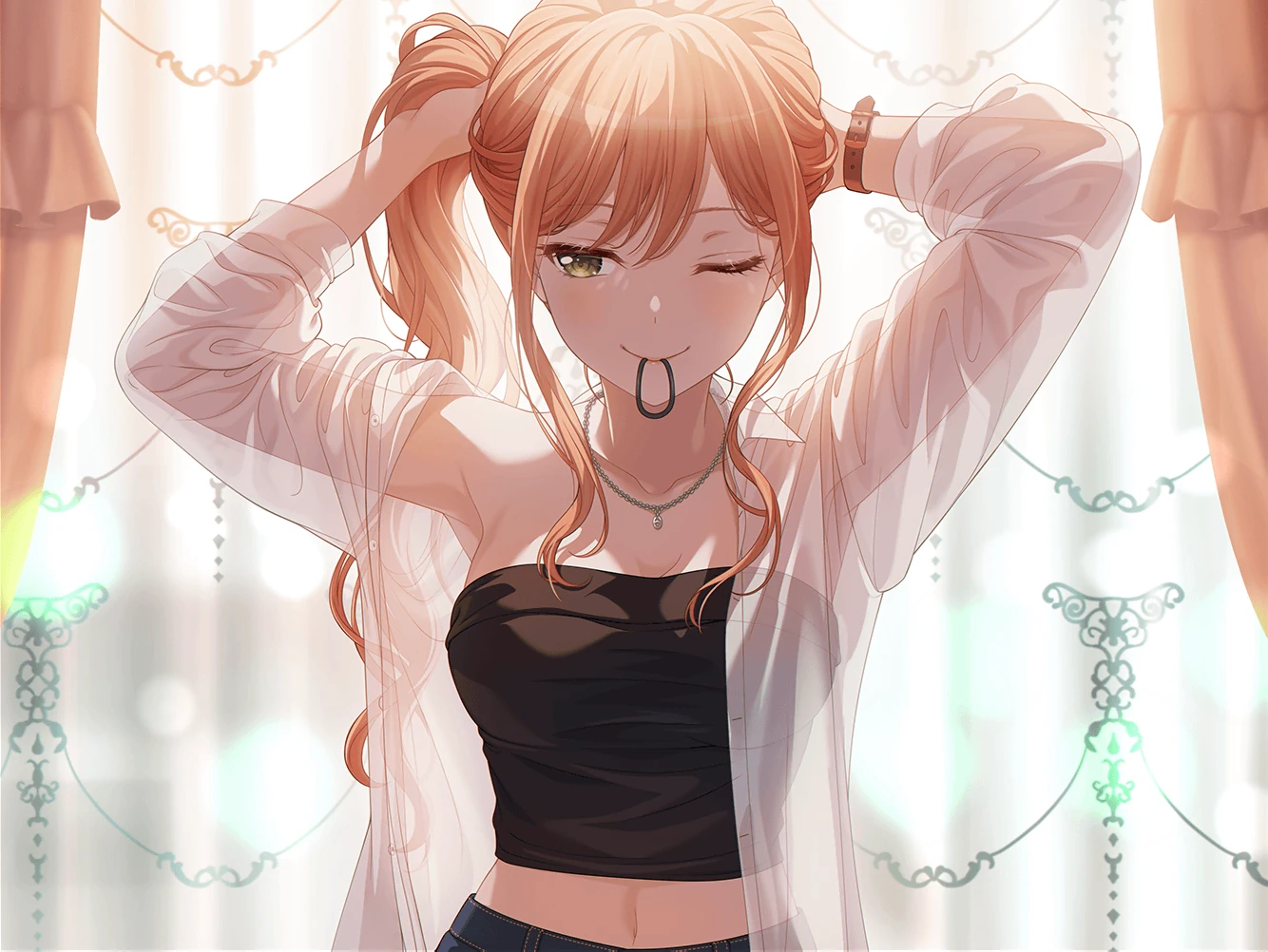In the vibrant world of Japanese pop culture, few names shine brighter than Imai Lisa. As the bassist and one of the main vocalists of the popular band Roselia, part of the BanG Dream! franchise, she has captured the hearts of fans with her powerful performances, unique style, and strong persona. Her journey from a student in uniform to a full-fledged rock star reflects not just her personal evolution but also the growing freedom of expression in contemporary Japanese entertainment culture. In this blog post, we’ll explore the significance of Imai Lisa’s transition away from the traditional uniform, what it symbolizes in the context of her character, and how this reflects larger cultural shifts.
Imai Lisa: A Brief Introduction

Before diving into the discussion of uniforms and individuality, it’s important to understand who Imai Lisa is. Within the BanG Dream! universe, she is the energetic and supportive bassist of Roselia, a band known for its gothic, darkly elegant aesthetic and emotionally charged performances. Lisa is not only a skilled musician but also a warm and approachable figure within her group of friends, often taking on the role of the “big sister” who offers comfort and support.
In terms of her appearance, Imai Lisa has evolved over time. Initially introduced as a high school student wearing the traditional Japanese school uniform, her style and persona have grown significantly as she stepped into the rock scene. The gradual shedding of her school uniform symbolizes not just her graduation from student life but a deeper transition toward maturity and independence.
The Symbolism of the School Uniform in Japanese Pop Culture
School uniforms, known as seifuku, hold deep cultural significance in Japan. They are associated with discipline, order, and youth, and are often seen as a symbol of the structured life of a student. The uniform embodies conformity, placing individuals within a collective identity, much like how students are viewed as part of a larger educational system. For female students, uniforms are also often a means of expressing their youth and innocence, which is a common theme in many anime and pop culture portrayals.
For Imai Lisa and her fans, the uniform carried the message of her youth and her identity as a student. However, as with many Japanese idols and fictional characters, there comes a time when the uniform is shed, signifying a break from the constraints of adolescence and the beginning of a new chapter. For Lisa, this transition from a uniformed student to a full-fledged rock star represents a shift in identity—from being part of a structured system to expressing her individuality and passion for music.
The Breakaway: No More Uniform
As Imai Lisa began to embrace her role in Roselia, her wardrobe evolved to match her artistic growth. The character’s wardrobe transition from the conventional school uniform to her stage outfits—dark, gothic-inspired attire with intricate details—demonstrates this breakaway from uniformity. It is no coincidence that the change in her appearance coincides with the deepening of her character’s emotional and musical journey.
“No more uniform” in Imai Lisa’s case symbolizes more than just a wardrobe change. It is a declaration of freedom, independence, and individuality. She has stepped out of the mold that her younger self was confined to and embraced her own path. This transition reflects her choice to follow her passion for music rather than adhering to the conventional expectations placed on young people in Japan.
In BanG Dream!, Lisa’s transformation is not just physical. Her character’s arc also reflects her emotional growth and the deeper connection she forms with music and her bandmates. She moves from the youthful innocence represented by the school uniform to the boldness and complexity symbolized by her stage outfits. Her transformation into an iconic rock star signifies her embrace of her true self, leaving behind the societal expectations represented by the uniform.
A Reflection of Contemporary Japanese Culture

Imai Lisa’s shift away from the school uniform also mirrors broader cultural trends in Japan. Over the past few decades, there has been a growing desire among younger generations to express their individuality and break away from rigid societal structures. This shift is visible in fashion, music, and entertainment, where traditional norms are being challenged by more personal and diverse forms of expression.
In the world of BanG Dream! and other media, characters like Lisa reflect this cultural shift. They symbolize a generation that is increasingly rejecting the idea that uniforms—whether literal or figurative—should define who they are. Instead, they are embracing their unique qualities and passions, even if that means stepping outside of the conventional expectations society may have for them.
In the past, Japanese idols and anime characters were often depicted as being bound by certain expectations, whether that was maintaining a pure image or adhering to traditional standards of behavior. However, the newer generation of idols and characters, like Imai Lisa, represents a break from that tradition. Their journey is one of self-discovery and self-expression, where they no longer feel the need to fit into a prescribed mold.
The Evolution of Fashion and Music in Roselia
The contrast between Imai Lisa’s uniformed past and her current, more liberated appearance is perhaps best seen in the band Roselia itself. Known for their gothic and theatrical stage costumes, the band’s visual aesthetic plays a key role in their identity. Their outfits are intricately designed to reflect their musical themes—dark, emotional, and powerful. These costumes are a far cry from the simplicity and uniformity of school attire.
For Lisa, stepping into these elaborate outfits signifies her transformation from a student confined by rules to an artist who can express herself freely. It’s not just about style; it’s about embodying the music she plays. Her uniform was once a symbol of who she was expected to be, while her stage outfits now reflect who she has chosen to become.
The Importance of Individuality in Music
Imai Lisa’s journey from school uniform to rock star attire also speaks to the importance of individuality in music. As a member of Roselia, her ability to stand out as an individual is crucial to the band’s dynamic. While the members of Roselia share a collective identity as a group, each musician brings their own personality and style to the band, creating a rich, multifaceted sound.
Lisa’s decision to leave the uniform behind and embrace her rock persona is a powerful metaphor for the role that individuality plays in music. In a band, much like in life, the whole is made stronger by the unique contributions of its individual members. Lisa’s evolution is not just about her finding her place in the band, but about her finding her voice as an artist and person.
Conclusion: No More Uniform, No More Limits
In the end, Imai Lisa’s journey away from the school uniform represents a much larger theme of freedom, individuality, and self-expression. Her story is not just about growing up, but about choosing to follow her passion and breaking away from the expectations placed on her. The “no more uniform” moment marks her decision to embrace her true self and pursue a life of creativity and music.
For fans of BanG Dream! and Roselia, Lisa’s transformation serves as a reminder that we all have the power to shed the uniforms—whether literal or metaphorical—that may be holding us back. It’s a call to embrace our individuality, pursue our passions, and find our own unique path in life.
For more information, visit our homepage!











Leave a Reply